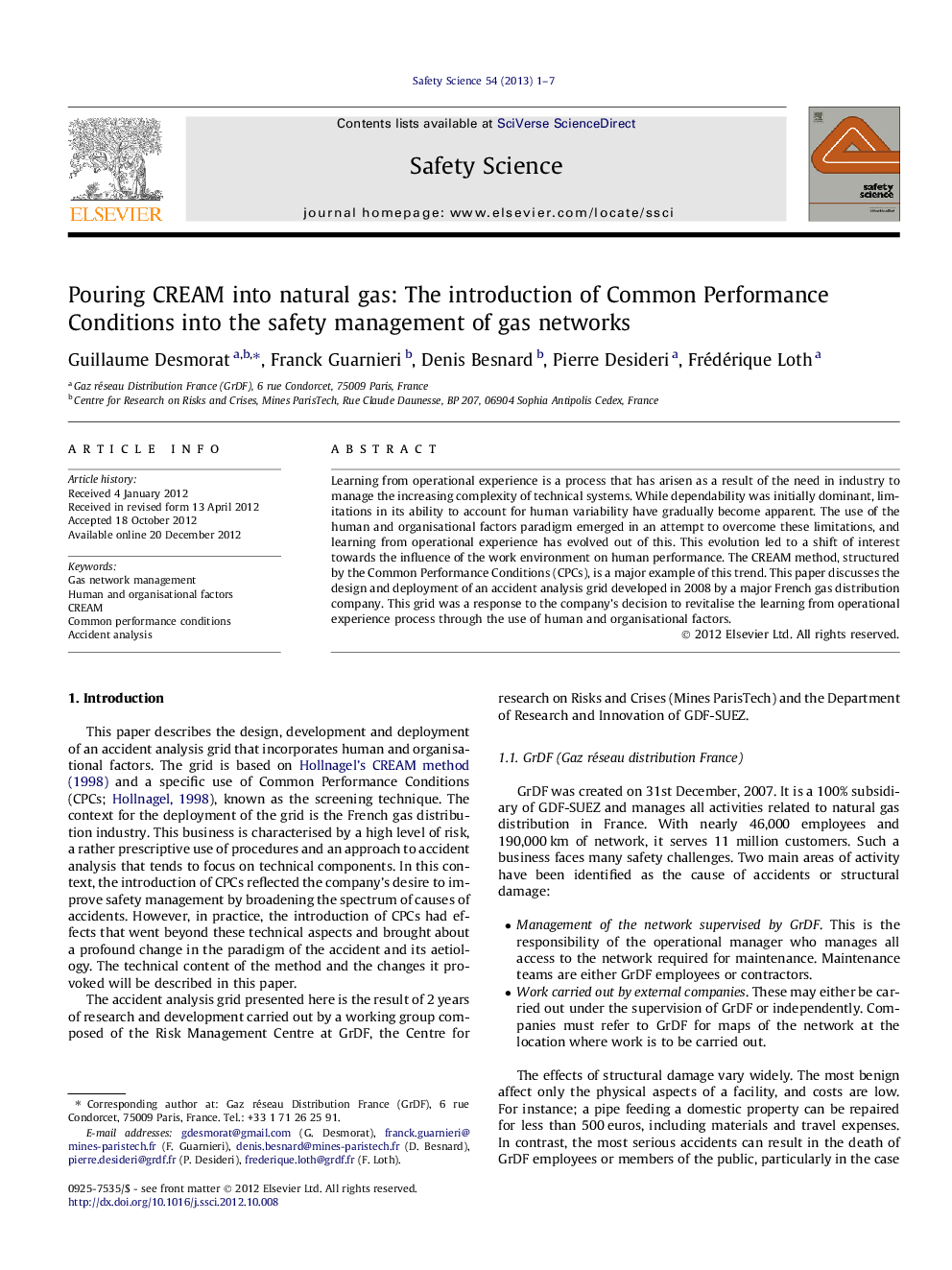| Article ID | Journal | Published Year | Pages | File Type |
|---|---|---|---|---|
| 589097 | Safety Science | 2013 | 7 Pages |
Learning from operational experience is a process that has arisen as a result of the need in industry to manage the increasing complexity of technical systems. While dependability was initially dominant, limitations in its ability to account for human variability have gradually become apparent. The use of the human and organisational factors paradigm emerged in an attempt to overcome these limitations, and learning from operational experience has evolved out of this. This evolution led to a shift of interest towards the influence of the work environment on human performance. The CREAM method, structured by the Common Performance Conditions (CPCs), is a major example of this trend. This paper discusses the design and deployment of an accident analysis grid developed in 2008 by a major French gas distribution company. This grid was a response to the company’s decision to revitalise the learning from operational experience process through the use of human and organisational factors.
► The CREAM method is the theoretical basis of the OCEANIE tool. ► The new accident analysis paradigm aims at explaining accidents through the context. ► This evolution generates cultural reactions at the origins of trade-offs that are analysed in the paper.
